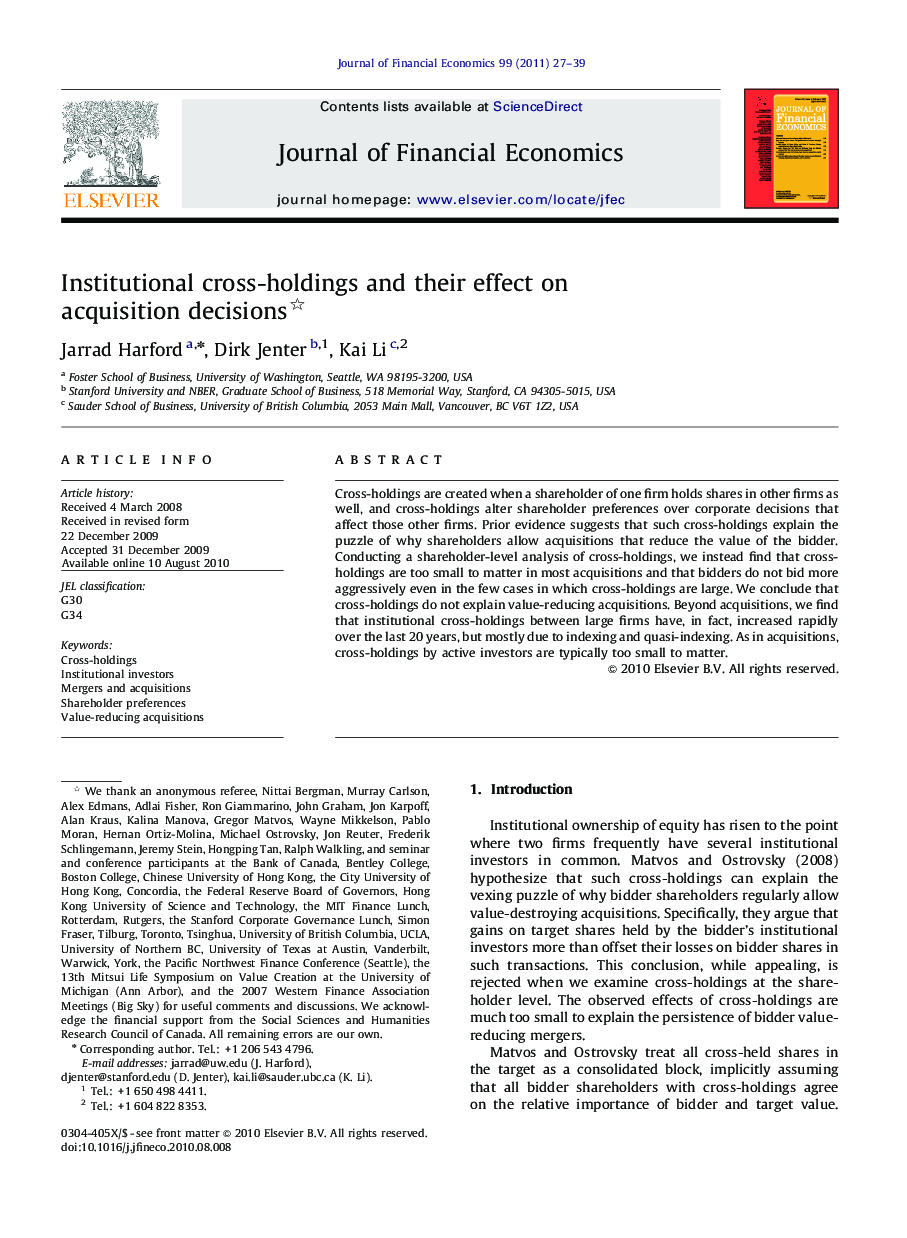| Article ID | Journal | Published Year | Pages | File Type |
|---|---|---|---|---|
| 959775 | Journal of Financial Economics | 2011 | 13 Pages |
Cross-holdings are created when a shareholder of one firm holds shares in other firms as well, and cross-holdings alter shareholder preferences over corporate decisions that affect those other firms. Prior evidence suggests that such cross-holdings explain the puzzle of why shareholders allow acquisitions that reduce the value of the bidder. Conducting a shareholder-level analysis of cross-holdings, we instead find that cross-holdings are too small to matter in most acquisitions and that bidders do not bid more aggressively even in the few cases in which cross-holdings are large. We conclude that cross-holdings do not explain value-reducing acquisitions. Beyond acquisitions, we find that institutional cross-holdings between large firms have, in fact, increased rapidly over the last 20 years, but mostly due to indexing and quasi-indexing. As in acquisitions, cross-holdings by active investors are typically too small to matter.
